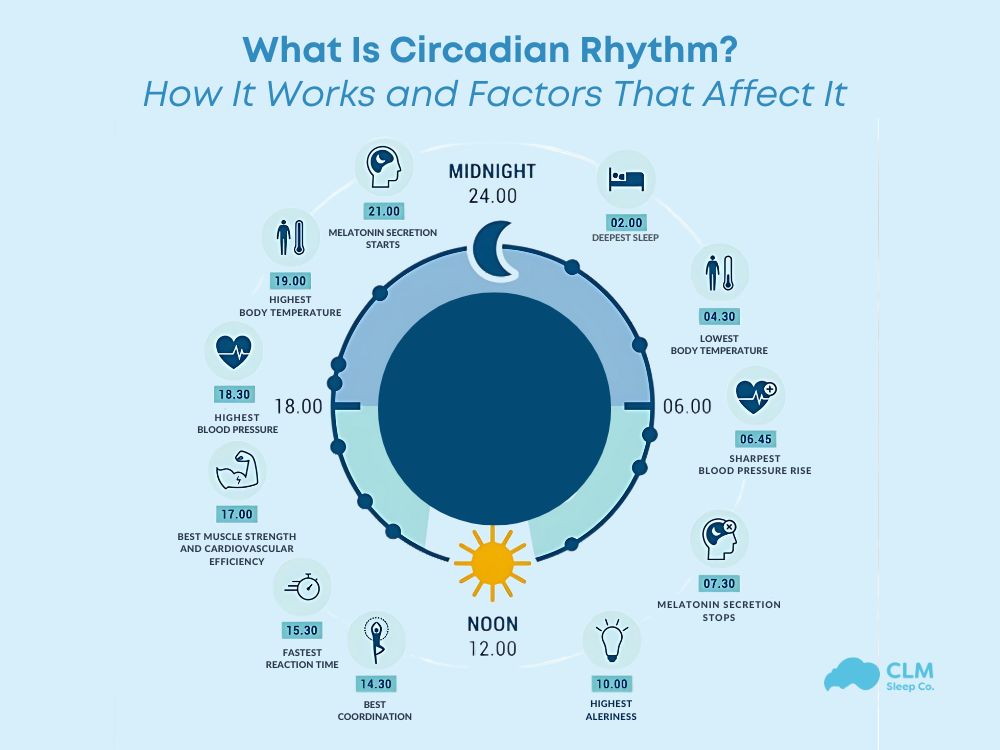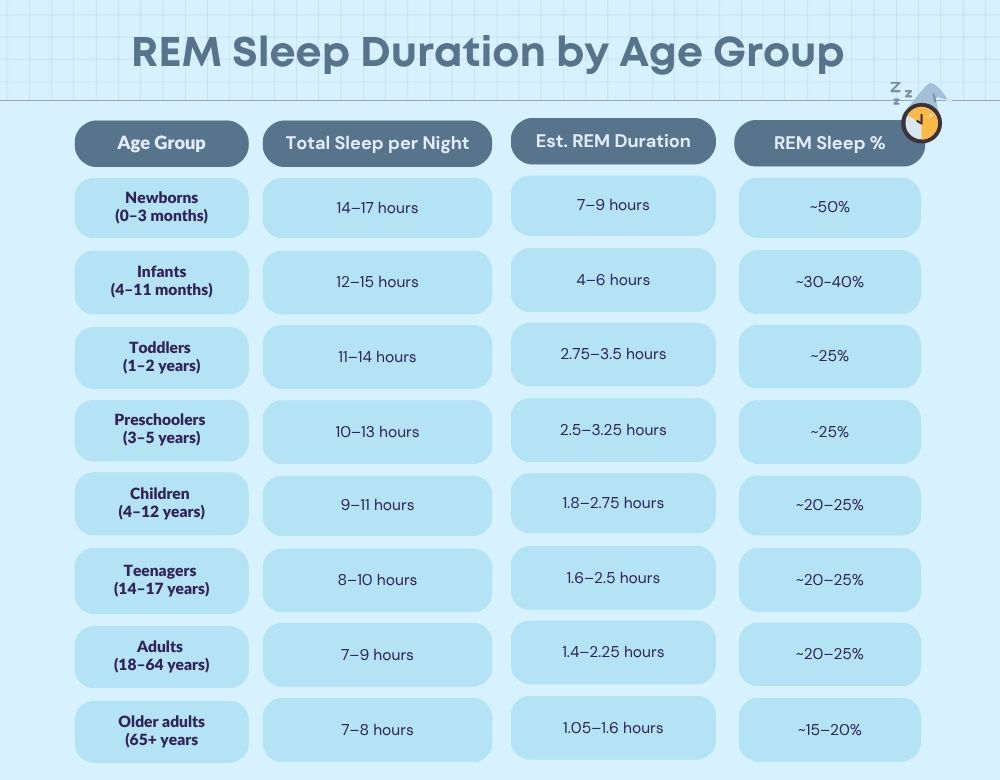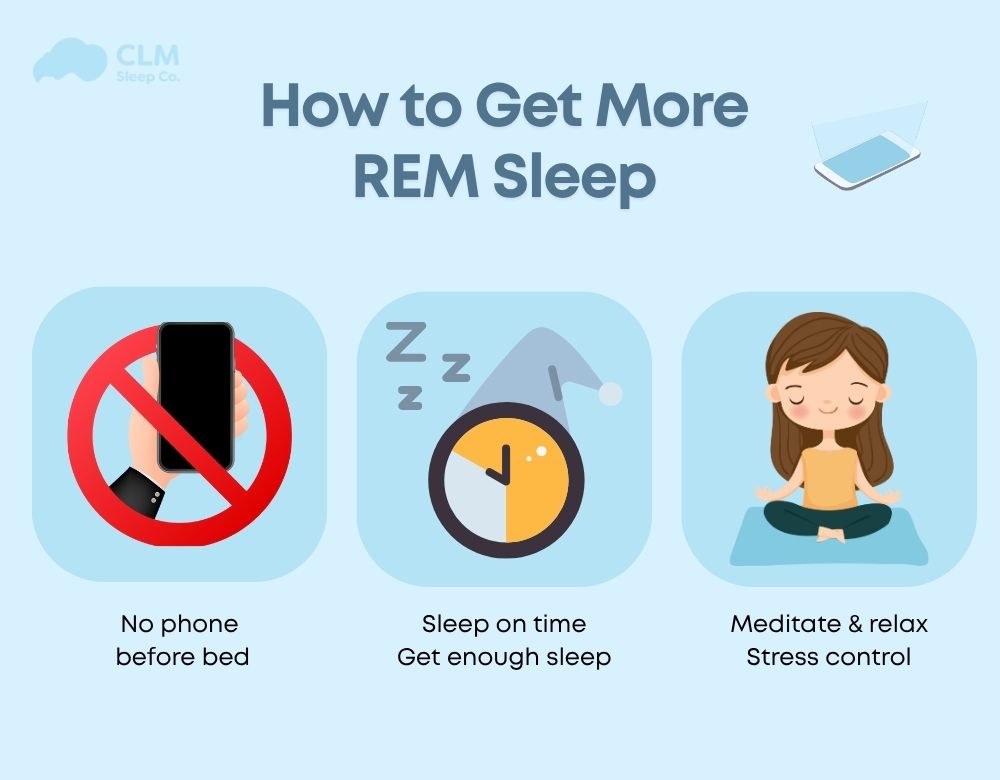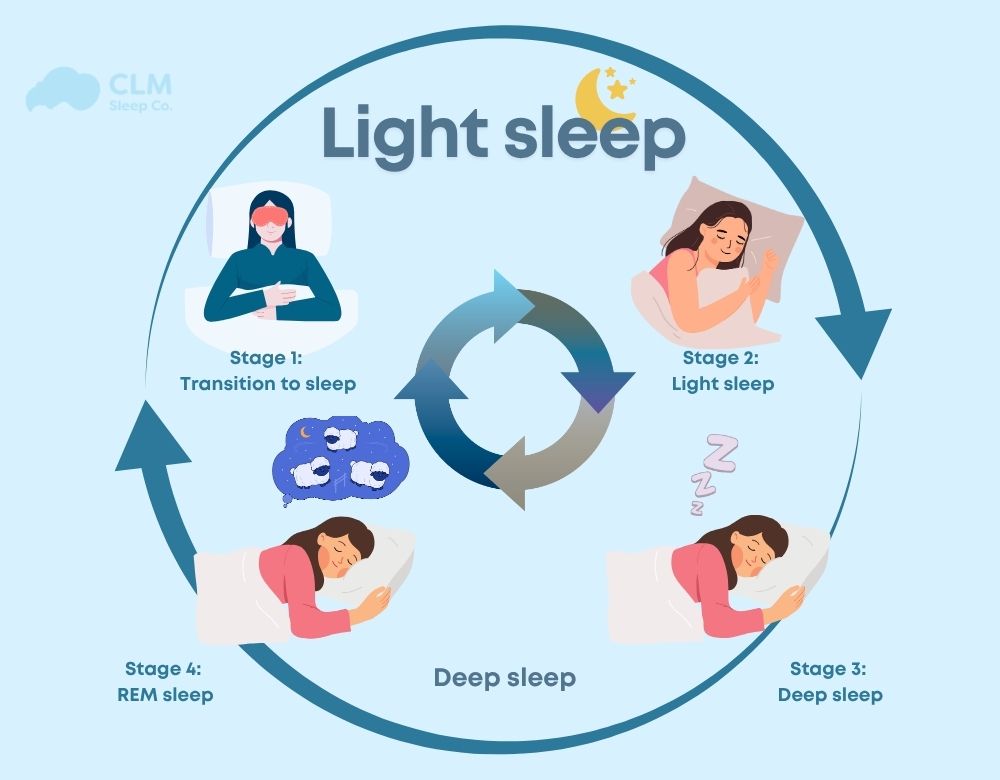The other thing one needs to make the best of his nights is quality, and such can be obtained if one gives some attention to the impact of circadian rhythm on the subject of sleep. This guide of CLM Sleep provides an in-depth look at circadian rhythm, its mechanisms, influencing factors, and ways to regulate it naturally.
Overview of circadian rhythm
The human body works on a 24-hour circle, otherwise known as the circadian rhythm. It is quite important because the sleep patterns, hormone production, metabolism, and every other aspect of the health status are determined by the biological clock of an individual. When disturbed, this rhythm can lead to a lot of sleep disorders and ailments.The human body works on a 24-hour circle, otherwise known as the circadian rhythm. It is quite important because the sleep patterns, hormone production, metabolism, and every other aspect of the health status are determined by the circadian rhythm of an individual. When disturbed, this rhythm can lead to a lot of sleep disorders and ailments.
Thus, everyone must know how this rhythm operates so that they can make the best out of it to get good quality sleep and make the best health practices to keep themselves well.
What is Circadian Rhythm?
A circadian rhythm is the natural, internal clock that regulates the sleep-wake cycle and repeats roughly every 24 hours. It is, therefore, the internal time-giver of an organism, directing many physiological and behavioral functions — among them hormone release, metabolism, and digestion, with body temperature and cognitive performance also under circadian control.
Dominantly, the suprachiasmatic nucleus (SCN) located within the hypothalamus of the brain takes control of this rhythm. The SCN receives direct inputs from the eyes and is triggered in response to external cues, largely from the play of light and dark on its photoreceptive properties, and from this it synchronizes the internal clock of the body with the external environment. The rhythms are highly responsive to influences like temperature, food intake, and social activities.
An optimal health-related quality of sleep, the proper quality of sleep, mental alertness, and general sense of well-being is what will be achieved by this correct control. Things which can cause its disruption due to, say, jet lag, shift work, irregular habitual sleep-wake timing, or excessive screen time at night, fatigue, hormonal health imbalances, and a weakened immune system increase the general risk of chronic conditions related to, for example, obesity, diabetes, and cardio conditions.
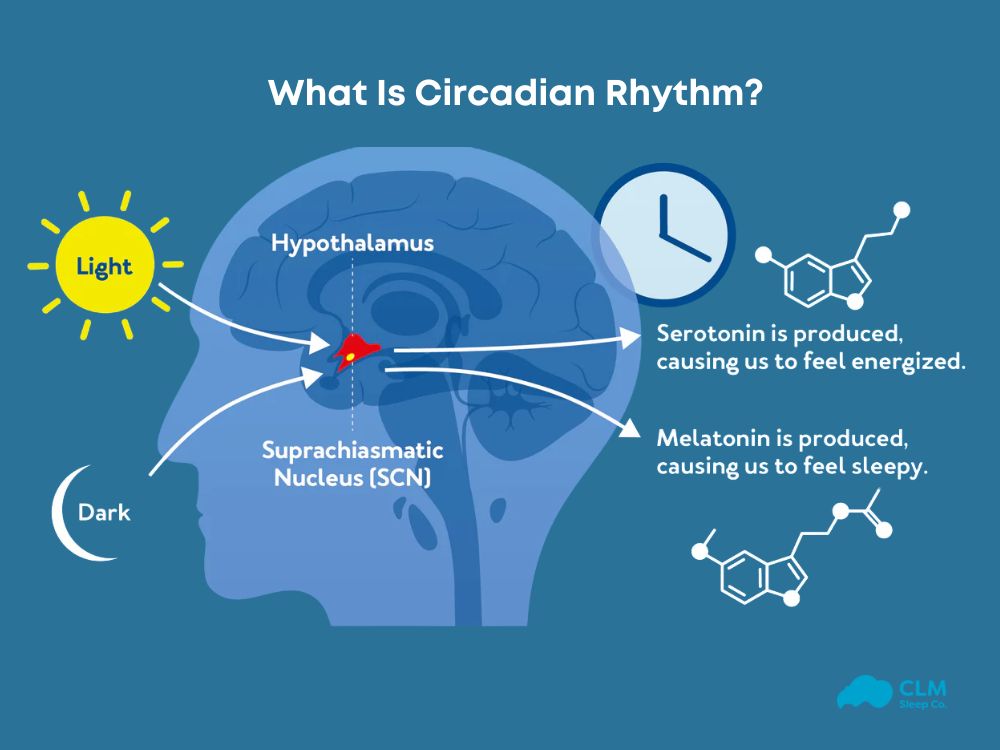
In Australia, the diverse time zones, seasonal variations, and unique lifestyle habits impact circadian rhythms differently across regions. For example, early sunrises in the northern areas and daylight saving time changes in some states can affect people’s sleep cycles and energy levels. Understanding how this natural cycle functions and adapting daily routines to align with natural light exposure can significantly improve sleep quality, mood, and overall health.
Mechanism
Circadian rhythms function through biological mechanisms that respond to external cues like light and temperature. These mechanisms regulate sleep and wakefulness to ensure the body functions optimally.
The Biological Clock
The body’s biological clock, or the suprachiasmatic nucleus (SCN) in the hypothalamus, controls circadian rhythms. This clock synchronizes bodily functions with the environment by responding to light and darkness cues.
The Hormone Melatonin
Melatonin, often called the sleep hormone, is produced in response to darkness and helps regulate sleep. Exposure to artificial light at night can suppress melatonin production, disrupting the circadian rhythm.
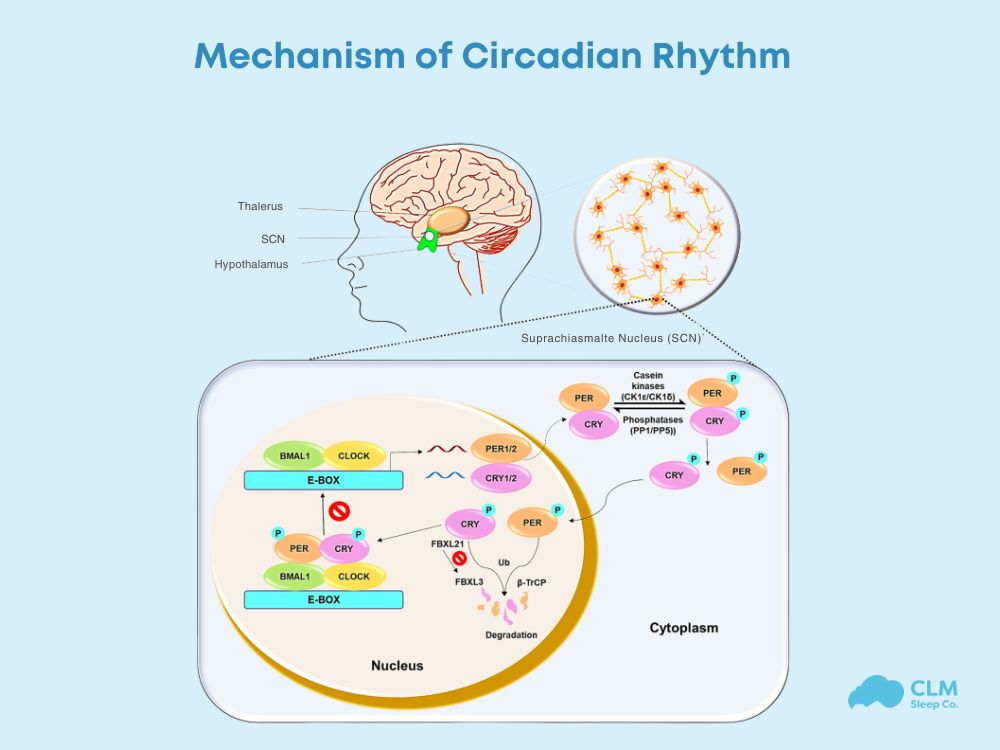
Influencing factors
Several factors can influence the circadian rhythm, either positively or negatively. Understanding these elements can help individuals adopt habits that support healthy sleep.
- Natural light: Sunlight plays a crucial role in regulating circadian rhythms. Exposure to natural light during the day promotes alertness, while darkness signals the body to prepare for sleep.
- Temperature: Body temperature fluctuates throughout the day, aligning with the circadian rhythm. A drop in temperature at night signals the body to enter sleep mode, while an increase in the morning promotes wakefulness.
- Lifestyle habits: Irregular sleep schedules, caffeine intake, and exposure to screens before bedtime can disrupt the circadian rhythm. Healthy habits, such as consistent sleep patterns and relaxation techniques, help maintain balance.
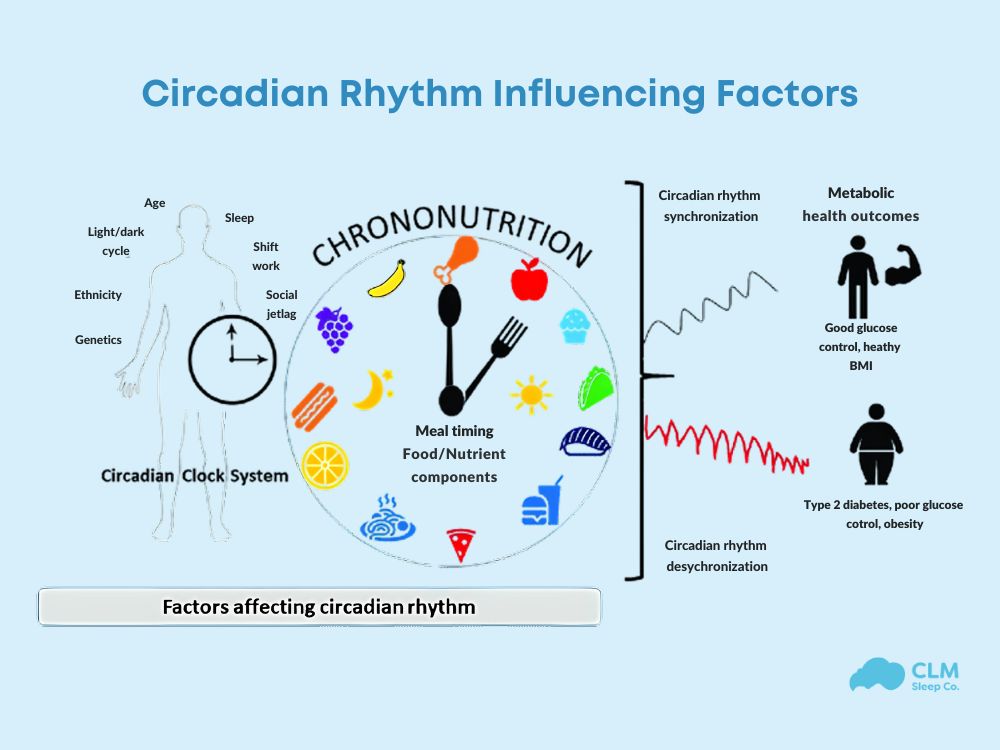
See more: How To Fix Circadian Rhythm
How Circadian Rhythm Affects Sleep & Health
The circadian rhythm plays a crucial role in regulating sleep patterns and overall health. When properly aligned, it promotes high-quality sleep, cognitive function, and physical well-being. However, disruptions to this natural cycle can lead to sleep disorders, weakened immunity, and an increased risk of chronic diseases.
Sleep Patterns & Quality
Circadian rhythms govern the sleep-wake cycle, determining when we feel alert or drowsy. They regulate the timing and structure of rapid eye movement (REM) and non-REM sleep cycles, ensuring a full and restorative sleep experience.
- A well-regulated circadian rhythm allows for deep, uninterrupted sleep, improving memory consolidation, mood regulation, and overall energy levels.
- Disruptions, such as irregular sleep schedules, shift work, or exposure to artificial light at night, can cause sleep fragmentation, leading to poor rest quality and reduced cognitive function.
Besides, working night shifts or staying up late misaligns the circadian rhythm, leading to sleep deprivation, daytime fatigue, and an increased risk of chronic health issues.
See more: Circadian Rhythm And Sleep
Physical & Mental Health
Circadian rhythm disruptions have been strongly linked to mood disorders, including:
- Depression – Irregular sleep-wake cycles can alter brain chemistry, contributing to depressive symptoms.
- Anxiety – Poor sleep exacerbates stress and emotional instability.
Regulating sleep patterns through proper light exposure, consistent bedtimes, and a balanced lifestyle can improve mental clarity, emotional stability, and overall psychological health.
Disruptions to Circadian Rhythm in Australia
In Australia, several environmental and lifestyle factors can contribute to circadian rhythm disruptions, affecting sleep and overall health.
- Jet lag & shift work: Frequent travel across time zones and shift work can cause circadian misalignment, leading to fatigue and decreased cognitive function.
- Seasonal changes & daylight saving time: Adjustments to daylight saving time can temporarily disrupt sleep patterns. Seasonal changes also affect sunlight exposure, impacting melatonin production.
- Blue light from screens & urban lifestyle: The widespread use of screens before bedtime emits blue light, suppressing melatonin and delaying sleep onset. Urban lifestyles with artificial lighting and irregular schedules contribute to circadian rhythm imbalances.
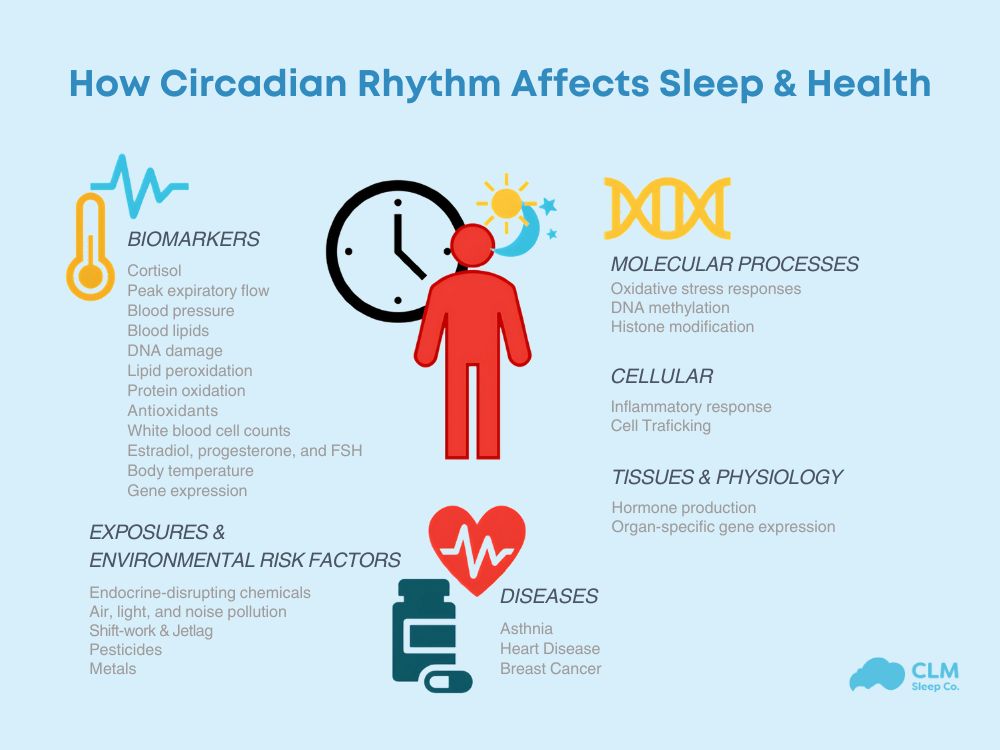
How to Regulate Your Circadian Rhythm Naturally
Maintaining a healthy circadian rhythm involves adopting specific habits that promote regular sleep-wake cycles and overall well-being.
- Exposure to Natural Light: Spending time outdoors during daylight hours helps regulate the circadian rhythm and improve sleep quality.
- Consistent Sleep Schedule: Going to bed and waking up at the same time daily reinforces the body’s internal clock, enhancing overall sleep quality.
- Limiting Blue Light Exposure: Reducing screen time before bed or using blue light filters can minimize disruptions to melatonin production and support healthy sleep patterns.
- Healthy Diet & Exercise: A balanced diet and regular physical activity help maintain circadian rhythm stability. Avoiding heavy meals and caffeine close to bedtime promotes better sleep.
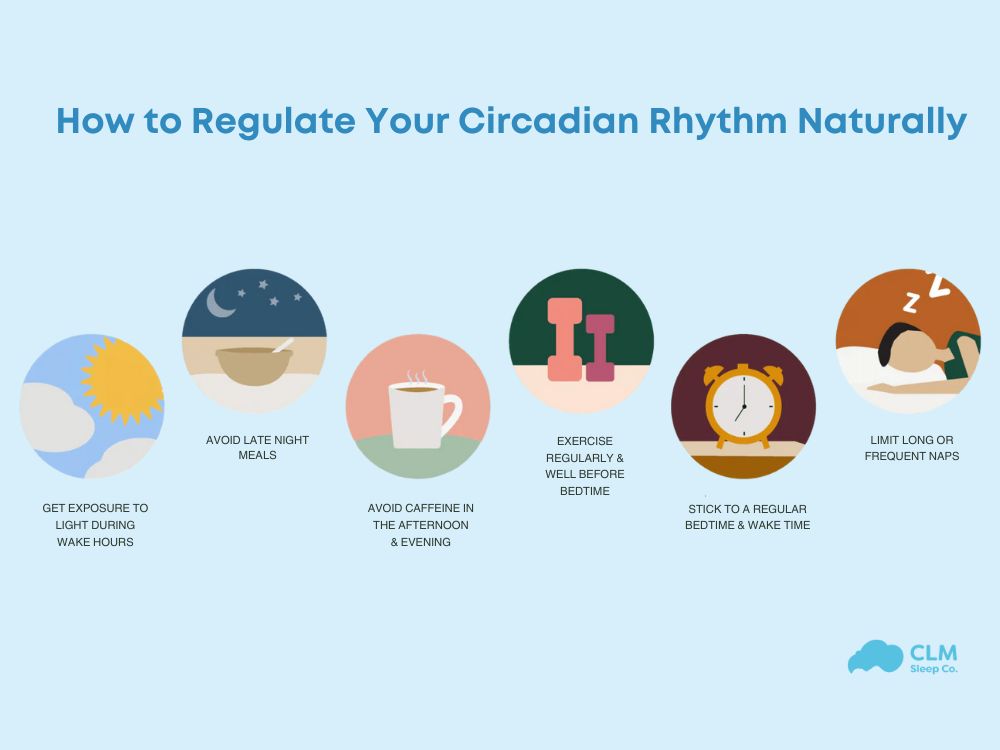
When to Seek Professional Help?
If sleep disturbances persist despite lifestyle adjustments, professional help may be necessary.
Signs of a Serious Circadian Rhythm Disorder
Persistent sleep disturbances, excessive daytime fatigue, and difficulty falling or staying asleep may indicate a circadian rhythm disorder requiring professional evaluation.
The Role of Sleep Specialists in Australia
Sleep specialists, including CLM Sleep clinics, general practitioners (GPs), and sleep disorder clinics, offer assessments and treatment options to restore healthy sleep patterns.
See more:
Conclusion
Circadian rhythm plays a crucial role in regulating sleep, mental health, and overall well-being. By understanding how it works and adopting natural regulation strategies, individuals can improve sleep quality and maintain a healthy lifestyle. If sleep disruptions persist, seeking professional guidance can help diagnose and manage circadian rhythm disorders effectively.
Store online: CPAP Disscount
